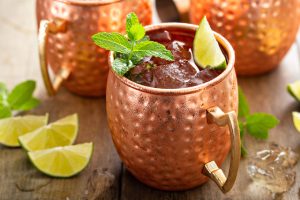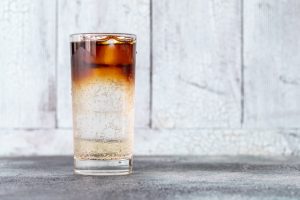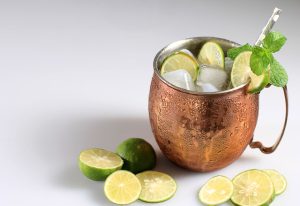Does Ginger Beer Have Alcohol, Health Benefits, and More
As a beer enthusiast and lover of all things beer and ginger, I find many people asking the question: Does ginger beer have alcohol? Are there any health benefits to ginger beer?
Ginger beer has gained popularity in recent years, with its distinct flavor and refreshing qualities. Join me as we dive into the world of ginger beer and uncover the truth about its alcohol content.
Understanding Ginger Beer
Ginger beer is a carbonated beverage known for its zesty and spicy flavor profile. It is made by fermenting ginger, sugar, and water. However, it’s important to note that there are both alcoholic and non-alcoholic versions of ginger beer available.
Alcoholic Ginger Beer
Alcoholic ginger beer is brewed through a fermentation process that involves yeast converting sugars into alcohol. The alcohol content in alcoholic ginger beer can vary, typically ranging from 4% to 8% ABV (alcohol by volume). This makes it comparable to some traditional beers in terms of alcohol strength. Brands like Crabbie’s, Fentimans, and Hollows & Fentimans are known for their alcoholic ginger beer options.
Non-Alcoholic Ginger Beer
On the other hand, non-alcoholic ginger beer undergoes a similar brewing process but is then carefully filtered to remove alcohol. Sometimes it also made without any fermentation at all, and instead is carbonated. Non-alcoholic ginger beer is a great alternative for those who prefer to enjoy the refreshing flavors of ginger beer without consuming alcohol. Popular non-alcoholic ginger beer brands include Reed’s, Bundaberg, and Fever-Tree.
Factors Affecting Alcohol Content
The alcohol content in ginger beer can vary depending on several factors. The fermentation time, yeast strains used, and the sugar content in the initial mixture can all contribute to the final alcohol level. It’s important to read labels and check alcohol percentages to ensure you’re selecting the right type of ginger beer for your preferences.
Ginger Beer in Cocktails and Mixology
Ginger beer has found a special place in the world of mixology and cocktails, bringing its distinctive spiciness and effervescence to create unique and flavorful beverages. Whether you’re a fan of classic cocktails or love experimenting with new creations, ginger beer can add a delightful twist to your drinking experience. Let’s explore the role of ginger beer in mixology and some popular cocktails where it shines.
1. Moscow Mule: The Classic Ginger Beer Cocktail

The Moscow Mule is perhaps the most iconic cocktail featuring ginger beer. This classic drink combines vodka, ginger beer, and lime juice, served over ice in a copper mug. The combination of the sharp ginger notes, the crispness of the vodka, and the tanginess of the lime creates a refreshing and well-balanced cocktail that has stood the test of time.
The effervescence and spiciness of ginger beer add depth and complexity to the Moscow Mule, making it a go-to choice for those seeking a flavor-packed cocktail. The copper mug also plays a role in keeping the drink colder for longer, enhancing the overall drinking experience.
2. Dark ‘n’ Stormy: A Fiery Blend

The Dark ‘n’ Stormy is a popular cocktail that originated in Bermuda and features ginger beer as its star ingredient. Traditionally, it consists of dark rum, ginger beer, and a squeeze of lime. The combination of the rich molasses notes from the dark rum and the bold spiciness of the ginger beer creates a powerful and invigorating flavor profile.
The Dark ‘n’ Stormy captures the essence of a stormy night, with the dark rum representing the stormy skies and the ginger beer symbolizing the turbulent waves. It’s a cocktail that brings a delightful intensity to your glass.
3. Kentucky Mule: Whiskey’s Ginger Twist

The Kentucky Mule is a whiskey-based variation of the Moscow Mule that swaps vodka for bourbon or rye whiskey. The combination of the robust whiskey flavors and the zingy kick of ginger beer results in a sophisticated and well-balanced cocktail.
The Kentucky Mule showcases the versatility of ginger beer in complementing different spirits. The spicy notes of the ginger beer enhance the depth of the whiskey, creating a cocktail that is both bold and refreshing.
4. Ginger Beer Margarita: A Tangy Twist
The Ginger Beer Margarita is a delightful variation of the classic Margarita that incorporates the spiciness of ginger beer. This cocktail combines tequila, ginger beer, fresh lime juice, and a touch of sweetness from agave syrup. The result is a tangy, zesty, and invigorating twist on the beloved Margarita.
The addition of ginger beer to the Margarita adds a lively kick that perfectly complements the tartness of the lime and the earthiness of the tequila. It’s a cocktail that brings a unique flavor combination to your palate.
5. Ginger Beer Spritz: Bubbly and Refreshing
For those looking for a lighter and more effervescent option, the Ginger Beer Spritz is a perfect choice. This cocktail combines ginger beer, sparkling wine or prosecco, and a splash of citrus juice. It’s a bubbly and refreshing drink that is ideal for warm summer days or festive celebrations.
The Ginger Beer Spritz offers a delightful balance of sweetness, acidity, and fizz. The ginger beer adds a subtle spiciness and depth to the cocktail, making it a crowd-pleasing option for any occasion.
Click Here to Make Your Own Ginger Beer!
Making Homemade Ginger Beer
For those who enjoy culinary adventures, making ginger beer at home can be a rewarding experience. Homemade ginger beer can be crafted in both alcoholic and non-alcoholic versions. By controlling the brewing process, you can experiment with different flavors and find the perfect balance for your taste buds.
We cover how to make beer at home in more detail here.
Health Benefits and Considerations
Ginger beer, with its zesty flavor and invigorating qualities, offers more than just a refreshing beverage. It is also associated with potential health benefits. However, it’s essential to understand the considerations and limitations when incorporating ginger beer into your lifestyle. Let’s explore the health aspects of ginger beer to help you make informed choices.
1. Digestive Aid and Nausea Relief
Ginger has long been recognized for its potential digestive benefits. Ginger beer, made from ginger root, contains gingerol, a bioactive compound known for its anti-inflammatory and antioxidant properties. These properties may help soothe the digestive system, relieve indigestion, and alleviate nausea.
For individuals experiencing motion sickness or morning sickness, ginger beer can provide a natural remedy. Its soothing properties may help reduce feelings of queasiness and settle an upset stomach.
2. Anti-Inflammatory and Immune-Boosting Effects
Ginger has been traditionally used for its anti-inflammatory properties. Regular consumption of ginger beer may help reduce inflammation in the body, which is linked to various health conditions such as arthritis and certain types of chronic pain.
Additionally, ginger is known for its immune-boosting effects. It contains compounds that may strengthen the immune system, helping the body fight off common illnesses. Including ginger beer as part of a balanced diet can contribute to overall immune health.
3. Antioxidant Power
Ginger beer contains antioxidants that help protect the body against oxidative stress caused by harmful molecules called free radicals. Antioxidants play a vital role in maintaining overall health by neutralizing these free radicals, potentially reducing the risk of chronic diseases and supporting cellular health.
Considerations and Moderation
While ginger beer offers potential health benefits, it’s important to be mindful of certain considerations:
1. Sugar Content:
Many commercially available ginger beers may contain added sugars or sweeteners to enhance the flavor. Excessive consumption of sugary drinks can contribute to weight gain, tooth decay, and other health issues. Opt for ginger beer brands with lower sugar content or consider making your own ginger beer at home using natural sweeteners.
2. Moderation and Personal Sensitivity:
Ginger can have a warming effect on the body, and some individuals may be more sensitive to its properties. Drinking ginger beer in moderation is recommended, especially for those who have certain medical conditions, such as gallbladder disease or certain gastrointestinal disorders. It’s always a good idea to consult with a healthcare professional if you have any concerns about incorporating ginger beer into your diet.
3. Interaction with Medications:
Ginger may interact with certain medications, such as blood thinners or antacids. If you take any medications regularly, it’s advisable to consult with your healthcare provider before consuming ginger beer or ginger products to ensure there are no potential adverse effects or interactions.
Does Ginger Beer Have Alcohol Conclusion
In conclusion, the alcohol content in ginger beer can vary depending on whether it is alcoholic or non-alcoholic. Alcoholic ginger beer undergoes a fermentation process and can have an alcohol content ranging from 4% to 8% ABV. Non-alcoholic ginger beer, on the other hand, has undergone a process to remove alcohol, making it a suitable choice for those looking to avoid alcohol.
When enjoying ginger beer, it’s important to consider your preferences and choose the type that aligns with your desired alcohol consumption. Whether you opt for the zingy flavors of alcoholic ginger beer or the non-alcoholic alternative, there are plenty of options available to suit your taste buds.
Does Ginger Beer Have Alcohol FAQs
Does all ginger beer contain ginger? Yes, ginger is a key ingredient in ginger beer. Its distinct flavor and aroma give ginger beer its characteristic spiciness.
Can children consume non-alcoholic ginger beer? Yes, non-alcoholic ginger beer is safe for children to consume. It offers a flavorful and refreshing option without the presence of alcohol.
Is ginger beer gluten-free? Most ginger beers are gluten-free, but it’s important to check the labels to ensure they meet your specific dietary requirements.
How long does ginger beer typically last? The shelf life of ginger beer varies depending on whether it is commercially produced or homemade. Store-bought ginger beer is typically best consumed within a few months, while homemade versions may have a shorter shelf life and should be consumed within a week or so.
Can ginger beer be used as a substitute for ginger ale in recipes? Yes, ginger beer can be used as a substitute for ginger ale in recipes to add a bolder and spicier flavor. However, keep in mind that ginger beer has a more pronounced ginger taste and may alter the overall flavor profile of the dish.
In the end, whether you prefer the kick of alcoholic ginger beer or the alcohol-free option, ginger beer offers a delightful and invigorating experience. So go ahead and savor the flavors of this unique beverage, knowing that you can choose the type that suits your preferences and brings you joy. Cheers to the world of ginger beer!




